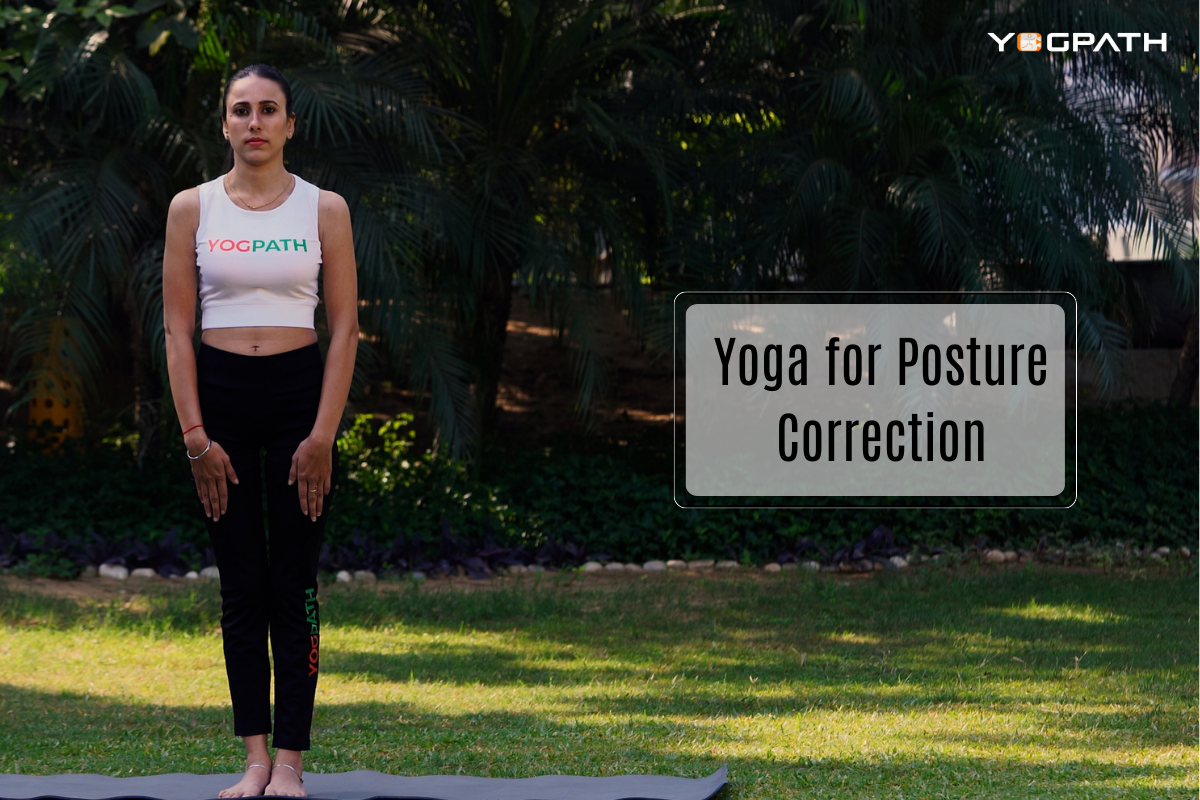
There are three major ways in which yoga might assist you in reaching your weight loss goals. It’s not just about the number of calories you burn while you’re doing yoga. The stress-relieving advantages of regular yoga practice, according to experts, may also assist in maintaining a healthy weight.
The practice of yoga has been linked to several positive health effects, including increased muscular strength, enhanced sleep quality, and decreased levels of stress. Is there a possibility that it might also aid in weight loss?
There are many various ways that yoga may be beneficial to one’s efforts to reduce body fat. If practiced correctly, yoga may develop into a lifestyle change, which in turn can make it easier to engage in more physical activity and cut down on emotional eating. In addition, it may assist you in effectively managing stress, which, in turn, can assist you in maintaining a healthy weight.
Yoga and weight loss
Yoga has been linked to both weight loss and the maintenance of a healthy weight for several reasons, including the following: the expenditure of energy during yoga sessions; the encouragement of more exercise through the reduction of back pain and joint pain; the heightening of mindfulness; the improvement of mood and the reduction of stress; and the fact that yoga practitioners feel more connected to their bodies, their levels of satiety, and their eating habits.
In a different piece of research that was completed in 2016 and published in a special edition of Yoga in Prevention and Therapy, researchers reviewed data obtained from interviews with 20 persons who said that they had lost weight as a result of practicing yoga. The researchers drew their conclusions based on the responses of the participants, which pointed to five factors that helped with weight loss: a shift to healthier eating, the impact of the yoga community and culture, physical changes, psychological changes, and the belief that the yoga weight loss experience was different than previous weight loss experiences.
Here are three significant ways in which yoga may assist you in your efforts to either reduce or maintain your current weight:
The practice of yoga may assist with mindful eating
On your yoga mat, you are improving more than simply your muscular tone and flexibility. When you maintain a position for a considerable amount of time, you become more in tune with the sensations that arise inside your body. To acquire and practice mindfulness, your teacher could urge you to keep track of your breath and pay attention to what your mind and body are trying to tell you. This would be an example of an activity that would fall under this category.
In addition, exercising awareness when you’re on your yoga mat might be of assistance when it comes to adopting mindful eating practices. Recognizing the signs of hunger and controlling binge eating are essential components of mindful eating. Over time (and with experience), you may even be able to home in on the meals that make you feel nourished and energetic, as opposed to the things that have more negative impacts (like making you feel lethargic or bloated). And it is precisely all of these habits that may assist you in maintaining a diet or eating plan for weight reduction, as well as in choosing better food choices in general.
A study that was conducted and published in the International Journal of Yoga in July 2015 found that practicing yoga is associated with shifts in eating habits. These shifts include reducing the amount of dietary fat consumed and increasing the consumption of fresh vegetables, whole grains, and products derived from soy. 159 women who participated in regular yoga practise or cardio-based exercise were surveyed for a research study that was carried out in 2015 and published in the Journal of Sport and Exercise Psychology.
When compared to those who engaged in cardio-based exercise, the yogis had a considerably lower prevalence of disordered eating practices. This is when yoga comes into its own. It’s not just about the exercise you’re putting in your body, though. It’s important to pay attention to the signals that your body gives you.
Practicing yoga may assist you in coping with stress.
There are several ways in which stress may lead to weight gain, especially chronic stress that is not well controlled. Yoga has been shown to help reduce levels of chronic stress. Both breathing exercises and meditation are essential components of a yoga practice. And both of these things contribute to increasing energy, enhancing mood, and reducing stress levels, which is the emphasis of the study that is being done on how yogic breathing may increase well-being in individuals who have chronic diseases and other conditions.
Because it may cause cortisol levels to increase, emotional eating (also known as “stress eating”), and difficulties sleeping, stress can make it extremely difficult to lose weight. Reducing stress and reversing some of the negative consequences that might make it more difficult to lose weight can be accomplished by practicing deep breathing.
As a direct result of engaging in breathing exercises, several physiological shifts take place inside the body. Studies have revealed that practicing mindfulness may lower the quantity of the stress hormone cortisol that is present in our bodies. Yoga was found to be associated with lower levels of evening cortisol, waking cortisol, resting heart rate, and cholesterol levels, according to a review that analyzed data from 42 studies and was published in December 2017 in the journal Psychoneuroendocrinology. The review examined data from the studies conducted between 1975 and 2017.
Yoga is Beneficial for Building Muscle
One further method in which yoga assists in weight reduction and the maintenance of a healthy weight is that it helps build muscle mass. When we think of building stronger muscles, the first thing that comes to mind is going to the gym and lifting weights. As a type of resistance when doing yoga, we make use of our body weight. Everything in your body is getting a workout because maintaining your equilibrium requires effort from your whole body.
The journal Preventive Medicine published a review in June 2016 that looked at 30 trials with more than 2,000 participants and came to the conclusion that yoga can reduce the waist-hip ratio in healthy adults and body mass index (BMI) in people who are overweight or obese. The review was conducted to find out whether or not yoga could help people lose weight.
According to the findings of other studies, even slower forms of yoga, such as restorative yoga, decreased fasting glucose levels in patients who were overweight or obese. This is an indication of better metabolic health.
How can I include yoga in my plan to get rid of excess weight?
If you are thinking about including yoga in your goals to lose weight, the experts have provided the following guidelines to help you get started:
Begin gradually. Beginning with an introduction is essential for getting started with yoga, as it is with any other kind of physical activity. We recommend that novices steer clear of more challenging and quicker kinds of yoga, including those with names like “hot,” “Bikram,” “power,” and “flow.” You need to choose a method that is simple to execute and won’t put you at risk of being injured to safely increase both your flexibility and your strength. You should look for courses that are branded “beginning” since they are more likely to teach how to do the postures.
Make modifications as required. If you are out of shape or attempting to lose a considerable amount of weight, pick a style of yoga that is tailored to your requirements; otherwise, you may need to make modifications to specific postures that you can’t completely execute when you first begin practicing yoga.
Find a technique, a class, and a teacher that are a perfect match for you. Until you discover a yoga class, a yoga style, and a teacher that is the right match for you, you may have to test out a few different options. Some people put more emphasis on meditation and breathing exercises. Some people put more of their attention on exercises that build strength. Some go at a quicker speed, while others move at a more leisurely one.
The single most essential thing you can do for your yoga practice is to choose one that you can stick with over time. When you do this, you’ll discover that you are more likely to stick with the routine and enjoy its short- and long-term advantages.
Include many types of physical activity in your routine. Even though most forms of yoga do entail some degree of muscular building, not all classes will provide you with cardiovascular exercise. Therefore, complement your daily yoga practice with any kind of cardiovascular activity, such as walking, running, riding, or any other activities that raise your heart rate.
Keep at it. You’ll need to develop the habit of doing yoga slowly for it to become second nature. If you just perform the yoga practice you choose to add to your efforts to lose weight once, it is not going to be effective. This is true regardless of the yoga practice you choose to incorporate. You need to commit to a routine to see results, so choose an activity that you take pleasure in and that you can perform once a week or perhaps more often.
Seek the advice of professionals.
Are you unsure of how to include yoga in your goal to lose weight? get free consultancy with Yogpath for weight loss program and start your journey with ease.











